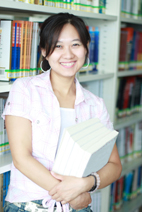

There are no planned workshops at this time. To be notified of upcoming events, please Register on the Project Mailing List.
Investigating the efficacy of culturally specific academic literacy and academic honesty resources for Chinese students
 ALTC Workshop
Friday 29 August
ALTC Workshop
Friday 29 August
On Friday 29 August we held a workshop to gain insight into issues surrounding academic literacy and teaching Chinese students with a view to creating appropriate resource materials for our project. We invited a reference group of academics comprised of past and present ALTC recipients who have focussed on Chinese students and/or plagiarism, teaching and learning experts. Several academics gave presentations outlining their experience and discussion followed. Amanda Pearce moderated the day and encouraged the participants with ideas for points to make during the day. The following themes emerged:
Language
Poor language skills emerged as one of the main barriers to creativity and critical thinking amongst Chinese students, combined with cultural, moral and ethical differences in our approach to academic writing. Chinese students are seen as reluctant to volunteer or challenge views. Issues about protecting face and the need to respect authority were raised. Michael Paton gave the examples of the "Let a hundred flowers bloom” campaign and Tiananmen Square to illustrate historical reasons for this reluctance. We need to address the underlying issue that Chinese students may value reticence and the appearance of consensus and may often feel linguistically constrained and culturally uncomfortable with demands that they be more assertive (Chanock The Right to Reticence).
Culture
Preliminary results of a survey by Kum Leng Chin indicate that the cultural background of students has some impact on learning, for example, they are less confident to participate in class discussions and would prefer fewer group assignments than local students. Michelle Barker also reported that they find difficulties speaking up, giving presentations in class and participating in group settings. “We expect these students to undertake assessment tasks which emphasise the very skills they do not have” (Kylie Redfern). We can help address these issues by providing context-specific cultural maps; strategies to help them negotiate the new culture, but not prescriptions to follow without question (Michelle Barker).
Knowledge
Kate Chanock found that whilst Chinese people have demonstrated a critical capacity as dissidents or demonstrators, this is not normally transferred to the context of learning (The Right to Reticence). Michael Paton suggested that whilst 18 year old Chinese students may think of knowledge as a fixed commodity, they can learn to critically evaluate and challenge the ideas of others and that as teachers we need to demonstrate to our students that they too can create new knowledge.
Definition of Plagarism
There are different standards amongst academics on what constitutes plagiarism; we need to be aware of the confusion this creates among students. Whilst plagiarism is represented variously amongst academics as a question of convention, morality and/or ethics (Julianne East), it is important for students to understand what definition of plagiarism is being used, why they should not plagiarise and how it can be avoided. Given the complexities involved it may be better to be prescriptive initially and encourage more creativity as students’ skill levels increase.
Heterogeneity of students
One of the key themes which emerged was that we are not dealing with a homogenous group of students. Therefore there will be no one single solution to our problem and we will not solve the problem with a single resource. Moreover, the issue needs to be reinforced over the student’s entire education; we need a whole of university and a whole of curriculum approach.
Teaching strategies
We need discipline-specific tasks, examples and resources. It may be more helpful to create smaller resources which teachers can adapt in different settings rather than one large resource. It can be more effective to deliver face-to-face than just ‘stick it on the web’ (Mark Loves Project Pandora in Beijing).
Delivery
We cannot assume that teachers have the ability to teach academic literacy in class. There is a reluctance in teaching staff regarding innovative teaching methods/processes that are not directly related to their discipline knowledge. We need to address the issue of ensuring the resources are used by both teachers and students and raise awareness of the existence of such resources. It is important that we try to change the students’ attitude about what is important and also teach them time- and resource-management skills.
Teaching methods
A number of teaching and learning strategies were discussed:
- Modelling
- create mental maps e.g. what do self-reflection, critical thinking, challenging ideas, creative solutions look like? How will these benefit me and my career? (Kylie Redfern).
- EXCELL Intercultural Skills Program - everyone in transition needs a map (Michelle Barker).
- use a dynamic, interactive way to show how you take material from different sources and put it into meaningful, independently created writing (Kate Wilson).
- Structured creativity
- use more guided and structured class activities and assessment tasks (Kylie Redfern).
- Case studies
- e.g. L'Oreal case study shows that creativity is valued in China (Kylie Redfern).
- Role plays
- e.g. an online role play dealing with issues around plagiarism, titled The Plagiarism e-Sim is available in the EnRoLE Repository.
- Student voice
- e.g. Video “Write on” University of Canberra (Kate Wilson) uses Chinese student actors.
- Animations
- e.g. Artsmart University of Melbourne uses vignettes of culturally sensitive issues.
|
Workshop Program (PDF format, 79Kb
Workshop notes
Download the Workshop Notes (PDF format, 58Kb) Download the Workshop Participant Notes (PDF format, 135Kb |
Intercultural Skills for Academic Success: The contribution of the ExcelL ntercultural Skills Program by Michelle Barker (PDF format, 64Kb) Information Literacy by Claire Brooks (PDF format, 61Kb) Strategies and Approaches to Teaching and Learning Cross Cultures by KL Chin (PDF format, 144Kb) Different Understandings of Plagiarism by Julianne East (PDF format, 41Kb) Enriching Partnerships and Enhancing Student Success by Fiona Henderson (PDF format, 21Kb) Student Teaching and Learning (Resources) Toolbox by Mark Loves (PDF format, 200Kb) Chinese Students and Critical Thinking by Dr Michael Paton (PDF format, 81Kb) An Investigation of Online Learning Technologies Amongst Shanghai University Undergraduate Students by Dr. Kylie Redfern (PDF format, 468Kb)
|

 Program
Program Powerpoint presentations
Powerpoint presentations